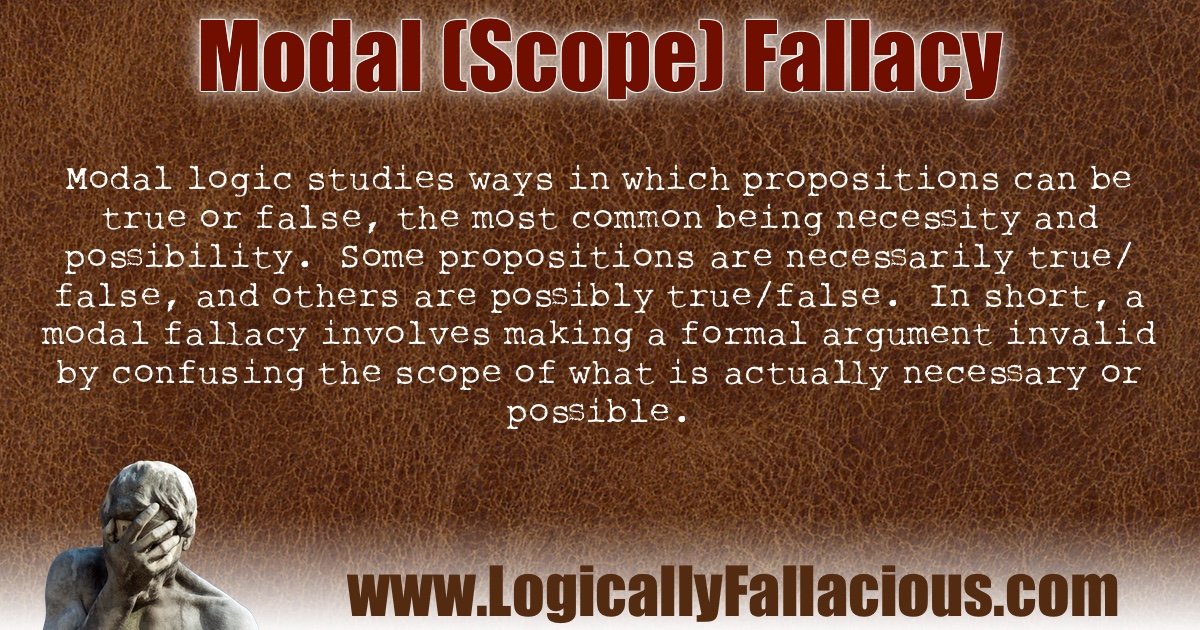(also known as: fallacy of modal logic, misconditionalization, fallacy of neccessity)
Description: Modal logic studies ways in which propositions can be true or false, the most common being necessity and possibility. Some propositions are necessarily true/false, and others are possibly true/false. In short, a modal fallacy involves making a formal argument invalid by confusing the scope of what is actually necessary or possible.
Logical Form:
A conditional claim is made using a necessary truth.
Therefore, conclusion is reached that a possible truth is necessary with no conditional statement.
Example #1:
If Debbie and TJ have two sons and two daughters, then they must have at least one son.
Debbie and TJ have two sons and two daughters.
Therefore, Debbie and TJ must have at least one son.
Explanation: We are told that Debbie and TJ have two sons and two daughters, so logically, by necessity, they must have at least one son. However, to say that Debbie and TJ must have at least one son, is to confuse the scope of the modal, or in this case, to take the contingent fact that applies to the specific case that is conditional upon Debbie and TJ having the two sons and two daughters, to the general hypothetical case where they don’t have to have any children. Therefore, if they don’t have to have any children, then they certainly don’t have to (necessary fact) have at least one son.
Example #2:
If Barak is President, then he must be 35 years-old or older.
Explanation: Technically this is fallacious. There is no condition in which someone necessarily is a certain age. More accurately, we would say:
It must be the case that if Barak is President, then he is 35 or older.
The “must” in this second statement covers the whole condition, not just the age of the president.
Exception: This is one of those fallacies that would make you look foolish for calling someone out on, unless you are among all academic philosophers. In casual argumentation many people do mean "possibility" and not "necessity." Remember to offer others a charitable interpretation of their argument.
Fun Fact: According to Article II of the U.S. Constitution, the president of the United States must be a natural-born citizen of the United States; be at least 35 years old; have been a resident of the United States for 14 years; and be able to identify a snake, an elephant, and an alligator.
